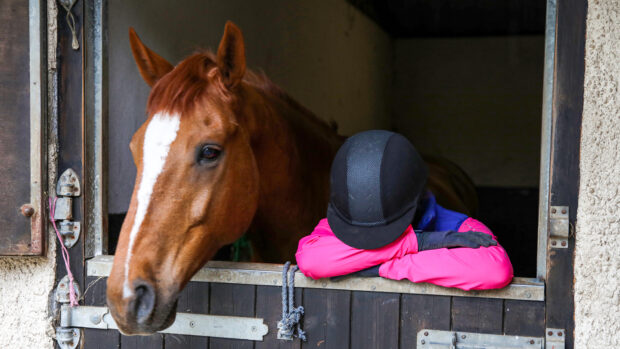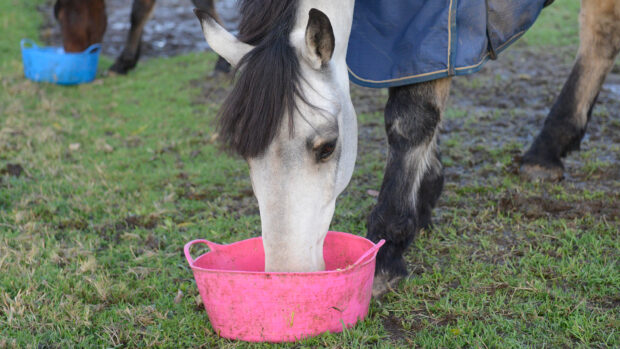Spillers’ equine nutritionist Clare Barfoot provides one H&H forum user with some insightful information on whether biotin can help support hoof health
Q: Biotin: “I was just wondering if you would recommend feeding a biotin supplement to help hoof growth? My mare is barefoot behind and cracked off a large chunk of the hoof wall. My farrier recommended keeping off roadwork for now and waiting for the horn to grow back as not much else can be done at the moment. She is not lame on the foot, it just seems like bad luck. Would it be worth supplementing biotin to help with the re-growth? How good is it and what sort of timescales should I be looking at for an improvement?”
A: Hoof formation is a highly complex process requiring good quality protein, vitamins, minerals, fats and last but not least, energy! All of these need to be present in sufficient quantities and in correct proportions to produce a strong hoof, so the entire diet needs to be balanced. Adding lots of one particular nutrient to a poor diet is unlikely to be of any benefit and some nutrients can even cause more harm than good if given in excess. For example, vitamin A and selenium can actually cause hoof problems if they are added to the diet at very high levels.
Continued below…
Related articles:
- H&H forum: find out what H&H readers suggested
- Find out how to feed horses struggling with their weight during the winter
- Read more expert feeding advice
Good doers and horses in very light work often get all of the calories they need from grass, hay or haylage, but forage-only diets often lack some essential nutrients. As far as diet is concerned, the first step towards tackling hoof problems in horses on forage only diets should be to provide a good quality feed balancer. Spillers Daily Balancer contains a full complement of vitamins and minerals in addition to 15mg of biotin per serving. This also applies to horses receiving less than the recommended daily ration of compound feed.
If you are confident that your horse’s current diet is fully balanced and meets all of his normal requirements, additional supplementation may help with poor hoof quality. Biotin is probably the most well-known nutrient as far as hoof supplements are concerned. This member of the B vitamin family is a key component for hoof horn quality and there is also scientific evidence to support this. Biotin should be fed at around 15 to 20mg per day for a typical 500kg horse i.e. 3 to 4mg per 100kg bodyweight. Calcium, phosphorus, zinc, MSM, lysine and methionine may also be useful additions to a hoof supplement.
Continued below…
Feeding supplemental oil in the diet to some horses with poor hoof quality might help although there is little scientific evidence to support this — although one study showed good results with 30ml of evening primrose oil mixed with maize and cod liver oil.
Hoof growth is slow so it may take up to 6-12 months before the effect of supplementation is seen. Total hoof wall replacement may take up to a year and sole replacement three-four months. If additional supplementation is then removed from the diet, the hoof quality may deteriorate again, so it is worth considering continuous supplementation.
For more information on feeding to support weight gain call the SPILLERS Care-Line on 01908 226626.




